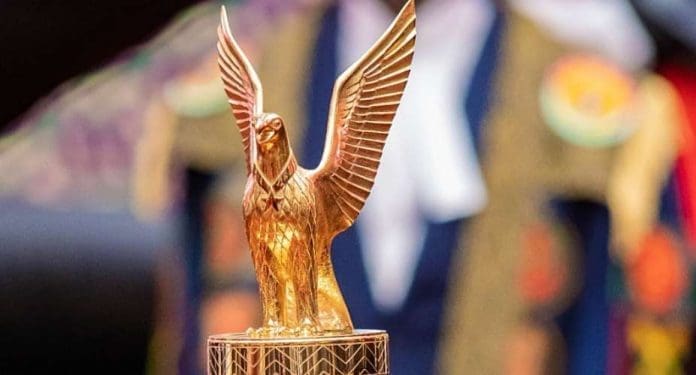When Speaker Alban Sumana Kingsford Bagbin indefinitely postponed Parliament’s scheduled October 14 sitting, citing only circumstances beyond his control, he left Ghanaians wondering what really happened behind closed doors. Two days later, on October 8, he fixed October 21 as the new resumption date, but the brief episode exposed uncomfortable truths about how Ghana’s legislature operates when the public isn’t watching.
The Speaker announced on October 6, 2025, that the Third Meeting of the First Session of the Ninth Parliament would be deferred due to circumstances beyond his control, a phrase so vague it practically begs for speculation. What circumstances? Political disagreements? Logistical nightmares? Unresolved disputes over parliamentary business? The statement offered no clues, and that opacity is precisely the problem.
Parliamentary procedure typically requires the Speaker to consult both Majority and Minority leadership before summoning the House. This ensures that not only is the business procedurally sound, but also politically feasible. The sudden reversal of the October 14 date suggests that either consensus wasn’t reached or that concerns emerged during these consultations that couldn’t be quickly resolved. In Ghana’s parliamentary practice, such concerns often relate to sequencing of government business, committee preparedness, or political sensitivities around particular bills.
But here’s what makes the timing particularly troubling. Parliament was expected to consider the revocation of mining law LI 2462, with new regulation banning mining in forest reserves scheduled to be laid on October 14. These aren’t minor technical adjustments; they represent the legal foundation upon which Ghana’s environmental governance rests, especially in the fight against illegal mining known locally as galamsey.
The government has been moving to revoke Legislative Instrument LI 2462 and its amended version, LI 2501, as part of decisive action to combat illegal mining. The instruments have been controversial since their inception, with critics arguing they opened forest reserves to environmental degradation. Alongside these mining regulations, Parliament faces the Ghana Investment Promotion Authority Act and the Security and Intelligence Agencies Bill, both carrying serious implications for investor confidence and national security.
To defer parliamentary business at such a juncture is to delay decisions touching Ghana’s developmental trajectory. And yet, the postponement happened anyway, raising questions about what was so contentious that it couldn’t wait a week.
The episode also reopened a familiar critique of Ghana’s political class. Parliament has historically demonstrated remarkable bipartisan efficiency when matters of members’ own welfare are concerned, whether salaries, allowances, or ex gratia. Yet when the nation’s environmental integrity or investment climate hangs in the balance, inertia seems to prevail more often than anyone would like. This disconnect between private interest and public duty undermines Parliament’s legitimacy as the people’s representative institution.
What makes the situation even more perplexing is the governing party’s overwhelming numerical strength in Parliament. With such a majority, the government should theoretically have little difficulty marshalling its legislative agenda. That the Speaker couldn’t summon MPs for proceedings despite this majority suggests deeper fissures, whether in the alignment of executive and legislative priorities or in the willingness of various factions to cooperate on critical bills.
Consider this: Even without the Minority present, Parliament managed to pass the Energy Sector Levy (Amendment) Bill, 2025, introducing a GH¢1 levy on petroleum products. If the government can push through revenue measures affecting every Ghanaian’s wallet, why the sudden inability to proceed with environmental legislation that enjoys broad public support?
The answer likely lies in what remains unspoken. Parliamentary procedure isn’t merely about dates and notices; it reflects the balance of power, ongoing negotiations, and sometimes outright stalemate between political actors who publicly claim unity while privately disagreeing on fundamentals.
The Third Meeting of the First Session of the 9th Parliament will officially commence on Tuesday, October 21, 2025, at 2 PM at Parliament House, Accra, according to the Speaker’s revised notice. The procedural hiccup has been resolved, at least on paper. But the silence surrounding those “circumstances beyond control” reveals much about how consensus gets manufactured, or fails to, in Ghana’s Ninth Parliament.
Ghanaians have entrusted their representatives with authority to deliberate and decide on matters of national importance. To postpone that mandate without clear explanation erodes public trust in democratic governance. If Parliament is to remain the cornerstone of Ghana’s constitutional order, it must exercise its powers with transparency and demonstrate that its delays and decisions serve the public interest rather than political expediency.
For a democracy that prides itself on accountability, the lesson here cuts deeper than a one week postponement might suggest. Citizens deserve not only representation but also candour about why their representatives sometimes can’t seem to show up for work when it matters most. The mining legislation awaiting parliamentary action affects rivers, forests, and livelihoods across Ghana. Whether those laws get passed on October 21 matters far less than whether Parliament can explain why they didn’t get passed on October 14.
That explanation still hasn’t come, and in its absence, speculation fills the void. That’s no way to run a democracy, even one with an impressive majority and a Speaker serving his second term.
Source: newsghana.com.gh











